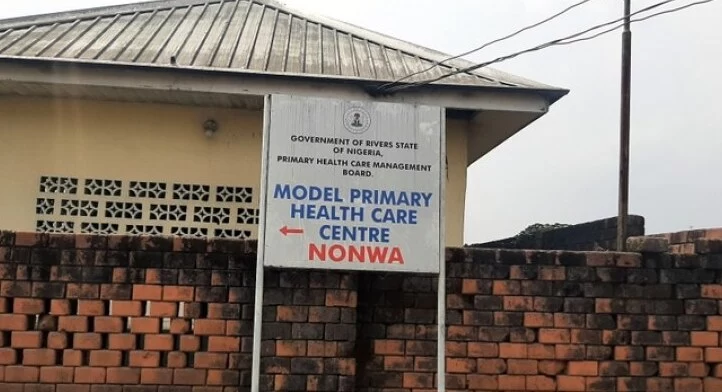
According to the World Health Organization (WHO), a staggering 80% of Nigerians are being driven into poverty due to the exorbitant costs of healthcare. This alarming revelation coincided with the Senate’s deliberation on two crucial legislative measures aimed at combating poverty and addressing intellectual property theft within the country.
During a meeting held in Abuja, Nigeria, Dr. Francis Nwachukwu Ukwuije, WHO’s Technical Officer on Health Financing, highlighted the urgent need for Nigeria to make healthcare more affordable and accessible. He emphasized the detrimental impact of high out-of-pocket expenditures on health, which surpass 70% in Nigeria, pushing more than half of the population, and in some states up to 80%, into poverty.
Dr. Ukwuije underscored the significance of implementing compulsory health insurance as a crucial step towards improving the overall development of the country. He reiterated WHO’s commitment to supporting member states in their priority areas and acknowledged that financing health insurance is an essential accelerator in Nigeria’s journey toward achieving universal health coverage.
In line with their mission, a WHO delegation visited the Nigerian Health Insurance Association (NHIA) to facilitate the efficient implementation of the recently enacted law mandating health insurance coverage for all Nigerians. This engagement aims to support the NHIA in operationalizing the new legislation to realize its intended benefits.
The delegation’s objectives include providing support to the NHIA for effective implementation, advocating for the new legislation at the government level, and assisting Nigeria in finalizing the health care financing process toward achieving universal health coverage.
Dr. Walter Kazadi Molumbo, the Country Representative for WHO in Nigeria, emphasized the importance of this engagement in realizing universal health coverage. He expressed gratitude for the opportunity to participate in high-level advocacy discussions and collaborate with stakeholders to strengthen the NHIA’s capabilities. The meeting serves as a platform to review strategies for operationalizing the health insurance authority bill and enhancing the NHIA’s mandate to deliver on its responsibilities.
In response, Prof. Mohammed Sambo, the Director General of the Nigerian Health Insurance Agency (NHIA), expressed enthusiasm for the WHO team’s arrival. Together with his management team, he pledged to establish an inclusive health insurance policy model that would drive comprehensive healthcare coverage for all Nigerians. Prof. Sambo recognized President Muhammed Buhari’s approval of the new health insurance program as a significant milestone in providing quality healthcare to more Nigerians and delivering on the nation’s democratic agenda.
Prof. Sambo acknowledged that access to medical care is a vital aspect of development and emphasized the crucial role of financial assistance in achieving universal health coverage. He emphasized that health insurance is the most effective means of ensuring unhindered access to healthcare for all Nigerians.
Meanwhile, the Senate deliberated on two legislative proposals aimed at addressing poverty and intellectual property theft within the country. One bill seeks to establish the National Poverty Alleviation Management Commission, while the other proposes the revision of the existing intellectual property law to combat theft.
The establishment of the National Poverty Alleviation Management Commission aims to coordinate and manage various funds designated for poverty reduction. Senator Kabir Abdullahi Barkiya, the primary sponsor of the bill, emphasized its potential to significantly reduce poverty in Nigeria, particularly for low-income individuals and their families who struggle to meet their basic needs.
During the plenary session, both bills successfully passed their first reading, reflecting the bipartisan support for these measures. Senators highlighted the importance of effective management and suitable regulations to ensure that poverty alleviation funds reach those in need and foster sustainable development.
Senate President Ahmad Lawan referred the bill on the National Poverty Alleviation Management Commission to the Committee on Poverty Alleviation for further examination. The committee has been granted a four-week timeframe to present